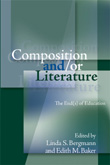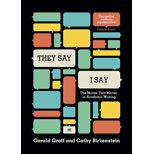The first topic broached in this session was that the national completion agenda "rests on good intentions but flawed assumptions." Reform is imposed, under resourced, and hasty. Such institutional and disciplinary divisions often lead to disarray and difficulty.
A Case Study: Florida SB1720 is one such hastily drawn piece of legislation set into effect in 2013. This law imposes the following, according to the white paper:
- exempts recent high school graduates and others from being required to take developmental education courses and from mandatory placement testing
- forbids standard semester format for developmental courses
- impacts curriculum, advising, workload, departmental structures, college-level instruction. Colleges were forced to hire more advisers and left no funding to hire more faculty.
Other Program Responses to Legislative Interventions
- Some California admissions departments have turned developmental students away.
- Placement has been impacted.
- Program design has been impacted:
- mainstreaming with accelerated learning
- module courses developed
- studio courses developed
- stretch courses developed
- compression of programs
Recommendations for Institutional Administration and Educators
- Include developmental instructors in designing reform.
- Initiate improvement to developmental education programs and course through research-based pilots.
- Prioritize evidence from local assessments and research on student success. (What works in Kansas may not work in Arizona.)
- Assess students' needs for developmental education and readiness for credit-bearing courses based on multiple pieces of evidence including student writing.
- Eliminate multiple-choice exit tests.
- Fund and develop strong developmental education departments.
- Support professional development for developmental educators.
- More ideas were offered, but I didn't capture them all. Please eagerly await the real completed report for full and accurate information.
Anyone interested in the NCTE's Policy Analysis Initiative can follow this Web site for further information. Also, the CCCC (Conference on College Composition and Communication) has a statement on preparing teachers of college writing. They ask, "How do we teach full-time and adjunct faculty how to teach for our institution?" The CCCC recommend that colleges offer training to show all English faculty how our institution approaches writing.
As a college, English teachers here can read the list and see areas of strength and places for continued growth opportunity at Yavapai College. Personally, I feel we are doing better than many colleges, and am grateful for thse potential of hiring a Developmental Education administrator in the near future. Colleges need to ask, "What issues are most pressing here?"
One state represented at the conference, Texas, said they have Reverse Transfer Agreements in their state (RMAs). When I asked for clarification on what an RMA is, I was told that their college tracks down students who transfer to another institution before they graduate from the university. The college gives credit for classes taken at the university toward completing a community college degree. They transfer back, and in so doing, students earn associates degrees, and the community college gets credit for completion. Do we have a system like this in Arizona? If not, perhaps this is an idea that Arizona colleges can seek to get instituted into our system.



